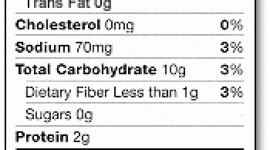Eating Disorders: The Road to Recovery
You want to get better but this is some yellow brick road
The road to recovery is often a long and frustrating one but it can also be a time of great hope and great relief. You probably have thought on and off about trying to "quit" your eating disorder. As you begin this process, you may experience a wide range of emotions: fear, impatience or frustration on the one hand, and determination, confidence and empowerment on the other.
Not sure about taking the first step?
Deep down you may have known for a long time that you needed to stop binge eating and purging or starving yourself. But maybe you were too afraid you would get really fat or that something the eating disorder gives you would be too much to lose. Maybe you have tried so many times before and your efforts only lasted a day or a few hours, and you have been afraid you could never really beat it. Or maybe you do not know how to begin a recovery process. The most important thing is that you have decided to try to make some changes in your life.
Is it worth it?
Ultimately you are choosing to get back your physical and emotional health. Sometimes it may not seem apparent to you that this eating disorder is taking a toll on your physical health - but it truly is. You may notice that the bingeing and purging leave you feeling tired, edgy and irritable. You may feel like you are on an emotional roller coaster. Be aware that you are not instantaneously going to feel healthy and energetic. It will take time. But getting your health back and getting your life back is worth your time and patience.
Losing your way
 You can expect that there will be good days and not-so-good days and maybe even some terrible days. Despite the best intentions, most people in recovery will have "slips" where they fall back into disordered eating habits. A variety of situations may trigger a slip. Avoid being hard on yourself when you slip or fail. Criticizing yourself for a slip can actually further discourage you and lead to more steps backward. What is far more important than your slip is whether you are willing to try again. Remember, no one says change is easy but change will happen if you keep trying. Research on relapses actually indicates that the more times you try to quit a behavior, the better chance you will eventually succeed.
You can expect that there will be good days and not-so-good days and maybe even some terrible days. Despite the best intentions, most people in recovery will have "slips" where they fall back into disordered eating habits. A variety of situations may trigger a slip. Avoid being hard on yourself when you slip or fail. Criticizing yourself for a slip can actually further discourage you and lead to more steps backward. What is far more important than your slip is whether you are willing to try again. Remember, no one says change is easy but change will happen if you keep trying. Research on relapses actually indicates that the more times you try to quit a behavior, the better chance you will eventually succeed.
You shouldn't have to do this alone
Most people find it helpful to see a mental health professional (a psychologist, psychiatrist, social worker or counselor, with a state license in their field) to assist in this process. Individual and/or group therapy for eating disorders, medical monitoring, psychiatric medication (eating disorders medications) and nutritional counseling are the most common elements of eating disorders treatment or intervention that are helpful (or even essential!) for individuals with eating disorders. One or more of these processes could be used at any given time; and many of them may be part of a person's recovery process over time. This will take time, so you should be sure to credit yourself for every single step you take, and know that your goal is not an easy one.
next: Getting Help for Anorexia and Bulimia
~ eating disorders library
~ all articles on eating disorders
APA Reference
Tracy, N.
(2008, December 20). Eating Disorders: The Road to Recovery, HealthyPlace. Retrieved
on 2024, April 24 from https://www.healthyplace.com/eating-disorders/articles/eating-disorders-the-road-to-recovery


